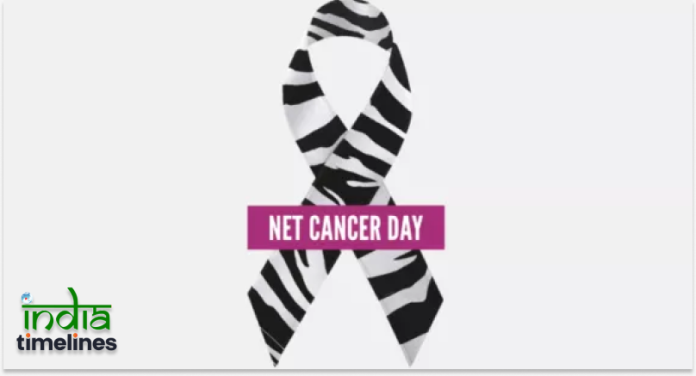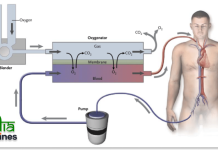
What is World Neuroendocrine Cancer Day?
World Neuroendocrine Cancer Day is an annual event dedicated to raising awareness about neuroendocrine tumors (NETs), a rare but serious form of cancer that affects the neuroendocrine system. Observed globally on November 10, this day aims to spread knowledge, promote early detection, and support research for better treatment options. In 2024, the focus is on uniting patients, healthcare professionals, and advocates to improve the quality of life for those affected by NETs.
The Significance of Raising Awareness
Why Awareness is Crucial for Rare Cancers
Neuroendocrine cancer, being a rare condition, often lacks widespread public recognition. Raising awareness can make a significant difference in early detection and treatment. Early diagnosis is key, as it can help reduce the risk of complications and improve patient outcomes.
The Role of Advocacy in Spreading Knowledge
Advocacy groups play a vital role in educating the public about the symptoms, treatments, and challenges associated with NETs. These organizations bridge the gap between medical communities and patients, ensuring that the disease does not go unnoticed.
What Are Neuroendocrine Tumors (NETs)?
Understanding the Neuroendocrine System
The neuroendocrine system is a network of cells that produce hormones and regulate bodily functions. Neuroendocrine tumors (NETs) are abnormal growths that arise from this system, disrupting normal hormone production.
Types of Neuroendocrine Tumors
Neuroendocrine tumors can develop in various parts of the body. The two most common types include:
Carcinoid Tumors
Carcinoid tumors are typically found in the gastrointestinal tract and lungs. They are slow-growing but can become aggressive if left untreated.
Pancreatic NETs
These tumors occur in the pancreas and can interfere with insulin production, leading to a wide range of metabolic problems.
Global Impact of Neuroendocrine Cancer
Statistics and Trends in NET Diagnosis
Over the years, NETs have been diagnosed more frequently, partly due to advancements in medical imaging and awareness campaigns. However, it remains a rare disease, affecting fewer than 5 individuals per 100,000 annually.
Survival Rates and Prognosis
The survival rate of patients with NETs largely depends on the tumor’s location and stage at diagnosis. When caught early, survival rates are favorable, but late-stage detection often poses significant challenges.
Early Symptoms and Detection
Why Early Detection is Often Challenging
The symptoms of neuroendocrine cancer are often vague and can be mistaken for other common illnesses. This makes early detection difficult, and many patients are diagnosed at a later stage.
Common Symptoms of NETs
- Persistent abdominal pain
- Unexplained weight loss
- Diarrhea or digestive issues
- Flushing or redness of the skin
- Hormonal imbalances
Diagnostic Methods for NETs
Imaging Tests
MRI, CT scans, and PET scans are commonly used to locate and determine the extent of neuroendocrine tumors.
Biomarker Analysis
Blood tests can measure hormone levels and detect certain markers that indicate the presence of a neuroendocrine tumor.
Biopsies and Pathology
A biopsy is often performed to examine the tumor cells under a microscope, providing detailed information about the tumor type and its aggressiveness.
Current Treatment Options
Surgery and Removal of Tumors
Surgical removal is the most common treatment, especially if the tumor is localized and has not spread.
Radiation Therapy
In cases where surgery is not an option, radiation therapy may be used to shrink or destroy cancer cells.
Hormonal Therapies and Medications
Hormonal therapies help to regulate hormone levels and reduce symptoms caused by NETs, particularly when the tumors are hormone-producing.
Targeted Therapy and Immunotherapy
Newer treatments like targeted therapy and immunotherapy aim to attack specific cancer cells or boost the immune system’s ability to fight the disease.
Ongoing Research and Advances
New Treatment Developments
Researchers are continuously exploring innovative therapies for NETs, including more effective targeted drugs and combination treatments.
Clinical Trials for NETs
Patients with neuroendocrine cancer are encouraged to participate in clinical trials that test new treatments, giving them access to cutting-edge therapies.
How to Support World Neuroendocrine Cancer Day 2024
Participating in Global Events
On World Neuroendocrine Cancer Day, communities around the world organize events to spread awareness, including informational seminars, fundraising walks, and social media campaigns.
Donating and Fundraising for NET Research
Every donation makes a difference. Supporting research through donations can help fund groundbreaking studies and trials aimed at improving treatment outcomes for NET patients.
The Importance of Patient Advocacy Groups
Connecting Patients with Support Networks
Patient advocacy groups provide essential support, offering resources, information, and emotional guidance to individuals diagnosed with neuroendocrine cancer.
Empowering Patients and Caregivers
These groups also play a critical role in empowering patients and their families to navigate the challenges of living with a rare cancer.
Living with Neuroendocrine Cancer
Coping Mechanisms for Patients
Living with neuroendocrine cancer can be overwhelming, but support systems, mindfulness practices, and counseling can help patients manage the emotional and physical burden of the disease.
Emotional Support and Counseling
Professional counseling can provide patients and their families with strategies to cope with stress, anxiety, and the emotional impact of living with a chronic condition.
Stories of Hope and Resilience
Inspirational Survivor Stories
There are countless stories of patients who have beaten the odds and continued to live fulfilling lives despite a neuroendocrine cancer diagnosis.
The Role of Caregivers
Caregivers play a pivotal role in supporting loved ones throughout their treatment and recovery journey. Their strength and compassion offer hope to patients in their most challenging moments.
A Global Call to Action
Governments and Healthcare Initiatives
Governments must continue to prioritize cancer research, especially for rare diseases like neuroendocrine tumors, to ensure equitable access to care for all patients.
Promoting Research and Better Treatment Accessibility
By promoting research and improving access to new treatments, we can create a future where neuroendocrine cancer is diagnosed early and treated effectively.
The Future of Neuroendocrine Cancer Awareness
Expanding Awareness Initiatives
As awareness grows, we can expect more advocacy, better diagnostic tools, and increased funding for research.
Enhancing Research Funding
Increasing financial support for neuroendocrine cancer research will pave the way for breakthroughs in treatment and diagnosis, ultimately saving lives.
Conclusion
World Neuroendocrine Cancer Day 2024 offers a crucial opportunity to bring global attention to neuroendocrine tumors, a rare but impactful form of cancer. By spreading awareness, supporting research, and connecting patients with the resources they need, we can all play a role in advancing the fight against neuroendocrine cancer. Let’s unite on November 10 to make a difference.
FAQs
What causes neuroendocrine cancer?
The exact cause of neuroendocrine cancer is not always known, but it can be linked to genetic mutations and, in some cases, inherited conditions.
Are neuroendocrine tumors hereditary?
Some forms of neuroendocrine tumors, like multiple endocrine neoplasia (MEN), can be hereditary, but most NETs are sporadic.
Can NETs be completely cured?
Cure depends on the tumor type and stage. Early-stage tumors that are localized may be curable through surgery, but advanced cases often require ongoing treatment.
How common is neuroendocrine cancer?
Neuroendocrine cancer is considered rare, affecting about 5 out of every 100,000 people annually.
What support resources are available for NET patients?
Many patient advocacy groups and organizations, like the Carcinoid Cancer Foundation, provide support, education, and resources to individuals diagnosed with NETs.




































